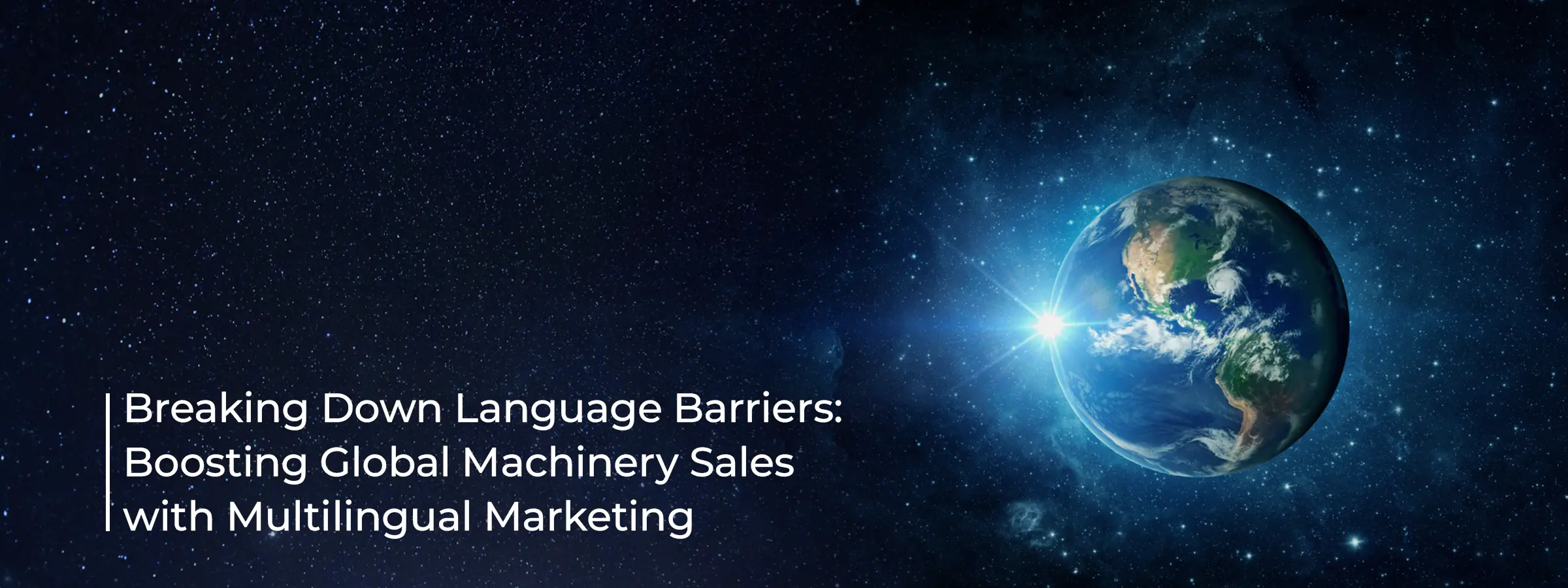
In the fiercely competitive machinery industry, where the race to global markets accelerates daily, the power of multilingual marketing emerges as a formidable ally. It’s not just about selling machinery; it’s about conveying value, trust, and understanding across cultures and languages. This blog post explores the transformative impact of breaking down language barriers through multilingual marketing. It offers sales and marketing teams insight into leveraging language services to amplify their global reach and drive sales.
At its core, multilingual marketing is the strategic process of adapting your marketing materials—digital content, brochures, product videos, or technical documents—to cater to diverse linguistic and cultural demographics. This strategic adaptation goes beyond mere translation; it's about resonating with potential customers in their native language, considering cultural nuances, preferences, and values influencing purchasing decisions.
In the digital age, your online presence is often the first point of contact with potential customers. A multilingual website, social media profiles, and online marketing campaigns make your machinery visible to a global audience. Search engine optimisation (SEO) strategies tailored to different languages further enhance this visibility, ensuring your products are discovered by those who need them most, regardless of where they are in the world.
Trust is a critical component in the machinery industry, where investments are significant and the stakes are high. Communicating in a customer's native language builds a foundation of trust and credibility. It shows that your company values and respects different cultures and is committed to meeting customers' needs on their terms. This level of empathy and understanding can be the decisive factor that turns a prospective lead into a loyal customer.
One of the most immediate benefits of multilingual marketing is its ability to overcome the inherent obstacles in international sales. Language barriers can lead to misunderstandings, misinterpretations, and frustration for buyers and sellers. Companies can navigate these challenges more effectively by ensuring that all marketing materials and communications are available in multiple languages, leading to smoother transactions and happier customers.
Engagement goes hand in hand with localisation. Multilingual marketing allows targeted campaigns that speak directly to local markets, acknowledging their specific needs, challenges, and aspirations. This localised approach demonstrates a deep understanding of the market, significantly enhancing customer engagement and increasing the likelihood of sales conversions.
A successful multilingual marketing strategy also requires a keen sense of cultural sensitivity. This means avoiding potential cultural faux pas and highlighting how your machinery can meet the unique needs of different regions. Whether showcasing how your equipment adheres to local regulations or solving a common problem faced in a particular market, cultural sensitivity can position your brand as a thoughtful and adaptable industry leader.
The journey to global market dominance in the machinery industry is complex and challenging.
However, by embracing multilingual marketing and its myriad of benefits, companies can not only
navigate this journey more smoothly but also enjoy the view along the way. Investing in language
services is not just a cost; it's a strategic move towards opening doors to new markets, creating lasting relationships, and, ultimately, driving global sales.
In conclusion, breaking down language barriers through multilingual marketing is not just about
reaching more people; it's about connecting with them in ways that matter. As the machinery
industry continues to evolve, those who invest in understanding and engaging their global audience
will lead the charge into the future.
© 2024 WHITE GLOBE GROUP PVT LTD